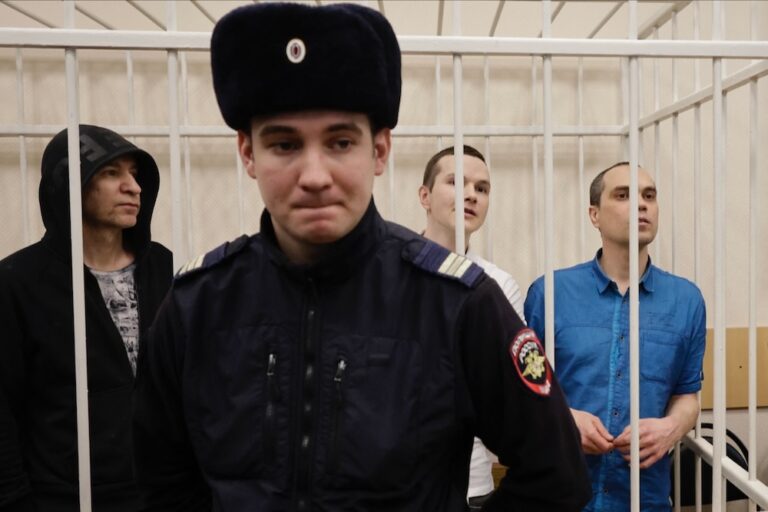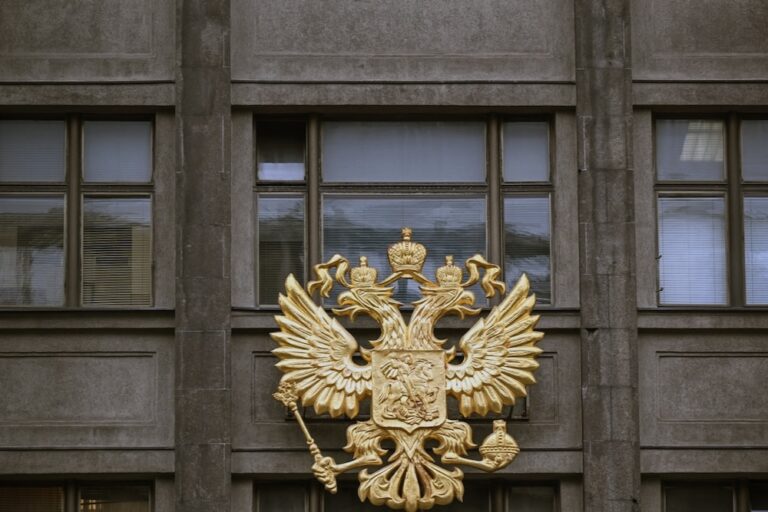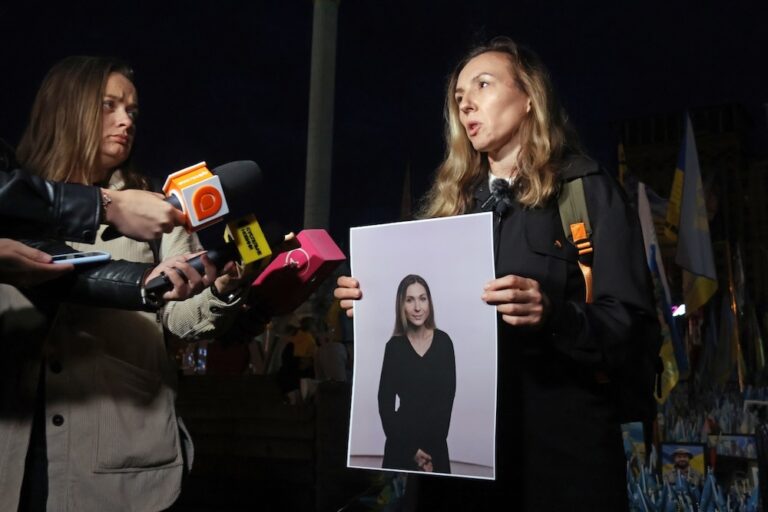Aleksei Sokolov, a prisoners' rights advocate who exposed corruption and torture in the prison system, was sentenced to five years in a maximum security prison.
(Human Rights Watch/IFEX) – Moscow, May 19, 2010 – The Russian authorities should free the human rights defender Aleksei Sokolov and carry out an independent and effective investigation into the miscarriage of justice that led to his incarceration, Human Rights Watch said today. On May 13, 2010, a court in the Sverdlovsk region sentenced Sokolov, a prisoners’ rights advocate and a member of the public prison monitoring oversight board, to five years in a maximum security prison on charges of robbery and theft. Sokolov’s conviction comes after two high-profile deaths in custody prompted President Dmitry Medvedev to fire dozens of prison officials. The deaths have also led to closer scrutiny of prison conditions in Russia.
“President Medvedev’s commitment to overcoming legal nihilism rings hollow as long as the system can be grossly manipulated to punish critics,” said Alison Gill, Moscow director at Human Rights Watch. “Medvedev has acknowledged the problems in prisons. He can show he’s serious about reform by protecting prison monitors like Sokolov from persecution.”
Sokolov is the chairman of Pravovaia Osnova (Legal Basis), an organization that defends prisoners’ rights and has exposed corruption and torture by police and prison officials. In January 2009, the Public Chamber of the Russian Federation appointed Sokolov to the public prison monitoring board, which is legally authorized to visit detention facilities, speak with detainees, and monitor detention practices. But the police had begun to threaten Sokolov several months before that appointment.
He was arrested on May 13, 2009, and his detention and prosecution have been marred with due process violations, Human Rights Watch said. According to an account of the arrest made by Sokolov and transmitted to his lawyer, the policemen who arrested him hit him several times and threatened him, saying that even though they might not be able to beat him, they would find “other ways to torture” him. They also told Sokolov that “the police aren’t under anyone’s control,” apparently in reference to his monitoring work.
Sokolov initially was charged with robbery of welding equipment from a remote industrial facility in Sverdlovsk province, in an incident alleged to have occurred in 2004. The case had been closed but was reopened days before Sokolov’s arrest. In July 2009, a court ordered Sokolov’s release from custody pending trial. But as he was leaving the court building, police immediately rearrested Sokolov on new robbery charges. The second set of charges stemmed from a 2004 robbery of a safe. This case had also been closed after the alleged perpetrators were convicted and sentenced. In August, prosecutors put forward yet a third set of charges, stemming from the theft of metal pipes from a factory in 2001.
On May 13, the Bogdanovich Municipal Court convicted Sokolov of the 2004 equipment robbery and the 2001 theft charges, but acquitted him of the safe robbery. The only evidence presented by the prosecution was the testimonies of inmates already serving sentences for other crimes.
According to one of Sokolov’s lawyers, two inmates wrote statements on the same day confessing to the robbery of the welding equipment and the theft of the pipes and implicating Sokolov, claiming that remorse caused them to come forward even though others had already been convicted for these crimes. Human Rights Watch expressed concern that the two men accusing Sokolov could have been subjected to coercion or ill-treatment, as Sokolov’s lawyer noted that both men had appealed to Pravovaia Osnova in the past, claiming abuse by prison officials.
The men who confessed to the crimes and incriminated Sokolov were interrogated as defendants. Under Russian law defendants are under no obligation to tell the truth, and they are not questioned under oath. The statements they made about Sokolov, which were the only evidence used to convict him, were not made with protections against perjury or any other guarantee of veracity, Human Rights Watch noted.
“The circumstances surrounding Sokolov’s arrest and the charges against him are highly suspect,” Gill said. “We’re deeply concerned that Sokolov’s accusers were coerced into giving testimony against him.”
In July 2008 Sokolov had made a public statement expressing concern that police would fabricate criminal charges against him in retaliation for his work. Sokolov had publicly stated that he had been threatened by law enforcement officials to “shut his mouth and not interfere” or he would be “locked up.” He said that a police officer had told him, “We can always find something to charge you with.”
In 2006 Sokolov distributed and publicized a documentary film made by Pravovaia Osnova, “Factory of Torture or Educational Experience,” on the use of torture in prisons. The film revealed abuse of inmates at facilities in and around Yekaterinburg, and described how the authorities at one facility coerce prisoners into making confessions. A clip from the film showing prison guards beating inmates with truncheons was shown on Russian and international television and circulated widely on the internet.
Human Rights Watch called on Russia’s international partners to urge the Russian authorities to release Sokolov immediately and to investigate both the threats and the proceedings against him. Prison conditions and the role of civil society in prison reform will be discussed at a meeting of the U.S.-Russia Civil Society Working Group on May 26 in Vladimir. Also known as the McFaul-Surkov Commission, after the heads of the government delegations of each country, the working group meets twice a year and brings together government representatives and civil society experts from each country. The working group’s meeting, its second, will focus on migration in addition to prisons.
“The US should use the civil society working group meeting to register serious concern over the fate of Aleksei Sokolov,” Gill said.
Human Rights Watch also called on the European Union (EU) to put Sokolov’s case on the agenda for its bi-annual summit with Russia, scheduled for May 31 to June 1 in Rostov.
“Russia’s international partners need to underscore that the legal system should not be used to punish people who expose problems in governance,” Gill said. “This is consistent with President Medvedev’s oft-repeated call to end legal nihilism’ in Russia.”


